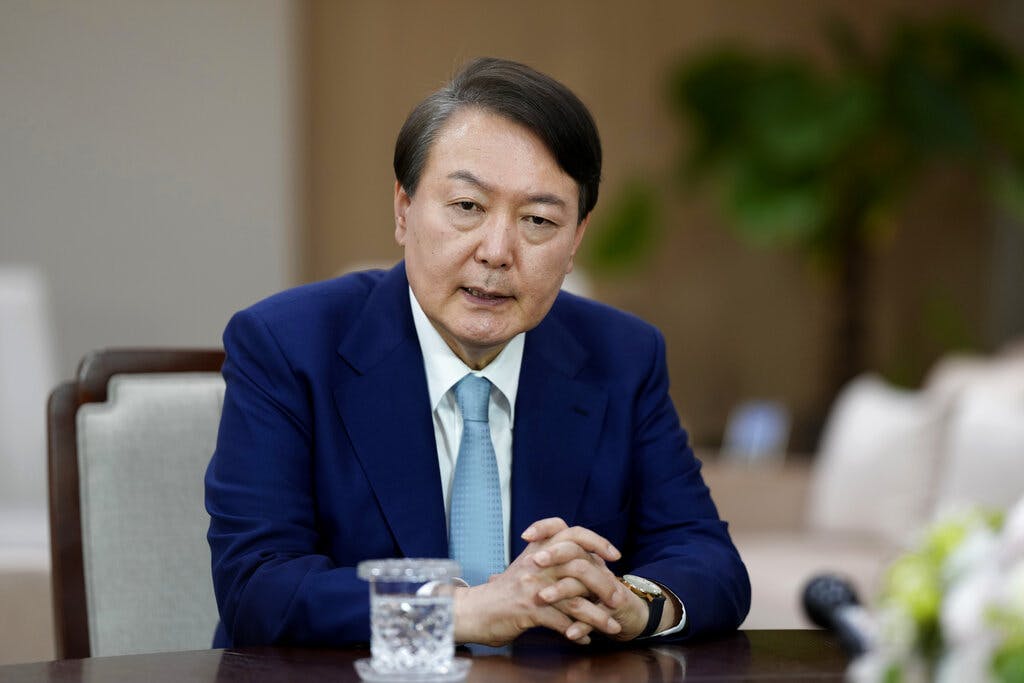South Korea Softens on Japan, Prompting Cheers From America
President Yoon’s labeling of Japan as a ‘partner’ draws applause from a spokesman and sighs of relief from officials eager for the countries to work closely against threats from North Korea.

The State Department is ecstatic over the South Korean president calling Japan a “partner” after many years of Seoul referring to Tokyo as an invader.
President Yoon’s declaration, on the holiday marking the Japanese slaughter of thousands of rebellious Koreans on March 1, 1919, drew applause from a spokesman and sighs of relief from officials eager for the countries to work closely against threats from North Korea.
Mr. Yoon “has articulated a vision for a more cooperative, future oriented relationship with Japan based on the shared values that those two countries have together,” the Department of State’s spokesman, Ned Price, said. “We very much support this vision.”
The formal language barely reflected the enthusiasm of American officials for Mr. Yoon’s March 1 speech in which he declared, “Now, a century after the March 1 Independence Movement, Japan has transformed from a militaristic aggressor of the past into a partner that shares the same universal values with us.”
Those words stand in sharp contrast to the bitterness that has pervaded Korean-Japanese relations since the end of 35 years of Japanese colonial rule in 1945. They may not have resolved the legacy of historical disputes, but they do portend close military cooperation between Seoul and Tokyo despite deep, unresolved differences.
They also herald regular war games among American, Korean, and Japanese forces. The three have already conducted joint naval and air exercises, but Koreans and Japanese hesitate to play at war on the ground in games in which one side or another may be declared the “winner” or “loser.”
All too aware of the sensitivities, American diplomats don’t dream of a formal American-Korean-Japanese treaty. The watchword, short of a treaty, is “trilateral cooperation.”
Such cooperation “is critical to addressing the challenges that our three countries collectively are confronting,” Mr. Price said. “We will continue to move forward trilaterally to embrace opportunities, to advance our common regional and international priorities.”
Mr. Yoon picked up on the theme, declaring “trilateral cooperation” was “more important than ever to overcome the security crises, including North Korea’s growing nuclear threats and the global polycrisis” — interrelated crises from northeast Asia to the Middle East to Eastern Europe, including Ukraine.
By sticking to generalities, though, Mr. Yoon suggested Japan and Korea still have their differences, especially on China. Unlike America or Japan, South Korea is not enthusiastic about a “commitment” to Taiwan against invasion by China, by far the South’s largest trading partner. South Korea also counts on the Chinese to rein in North Korea, which depends on China for all its oil and half its food.
Nor did Mr. Yoon mention long-running disputes with Japan, including demands for compensation for the heirs of Koreans forced to work as de facto slaves in Japanese factories in World War II. Koreans and Japanese also disagree, among other issues, on crucial details of Japanese imperial history and compensation for “comfort women” forced to serve Japanese troops.
While skirting sensitive topics, Mr. Yoon’s outlook differed dramatically from that of his predecessor, the liberal Moon Jae-in, who looked unsuccessfully for reconciliation with North Korea’s leader, Kim Jong-un. While assenting to joint exercises on computers, Mr. Moon disapproved of war games on the ground.
Japan, Mr. Yoon assured his often skeptical countrymen, “shares the same universal values with us and cooperates on issues of security, economy, and global agendas” — music to the ears of American officials promoting good will and amity between America’s two Northeast Asian allies.

